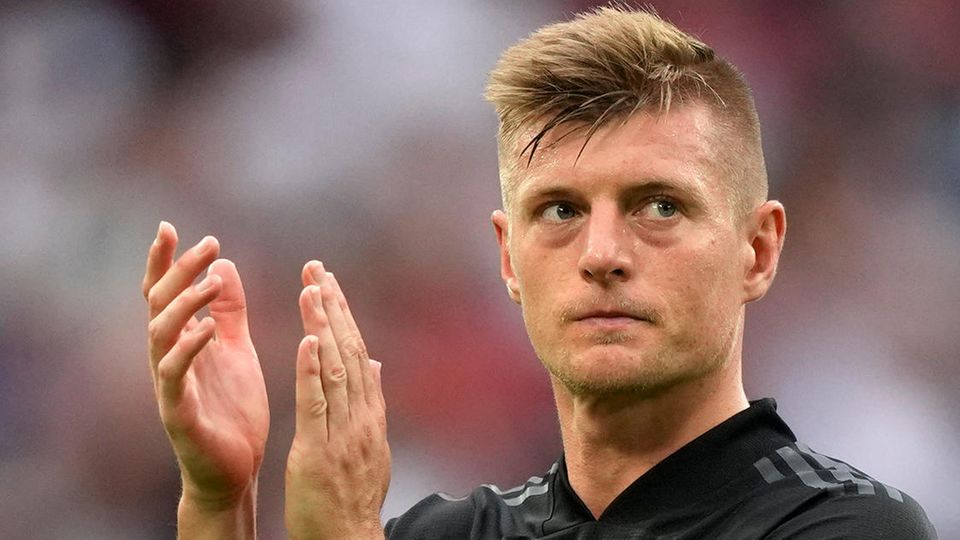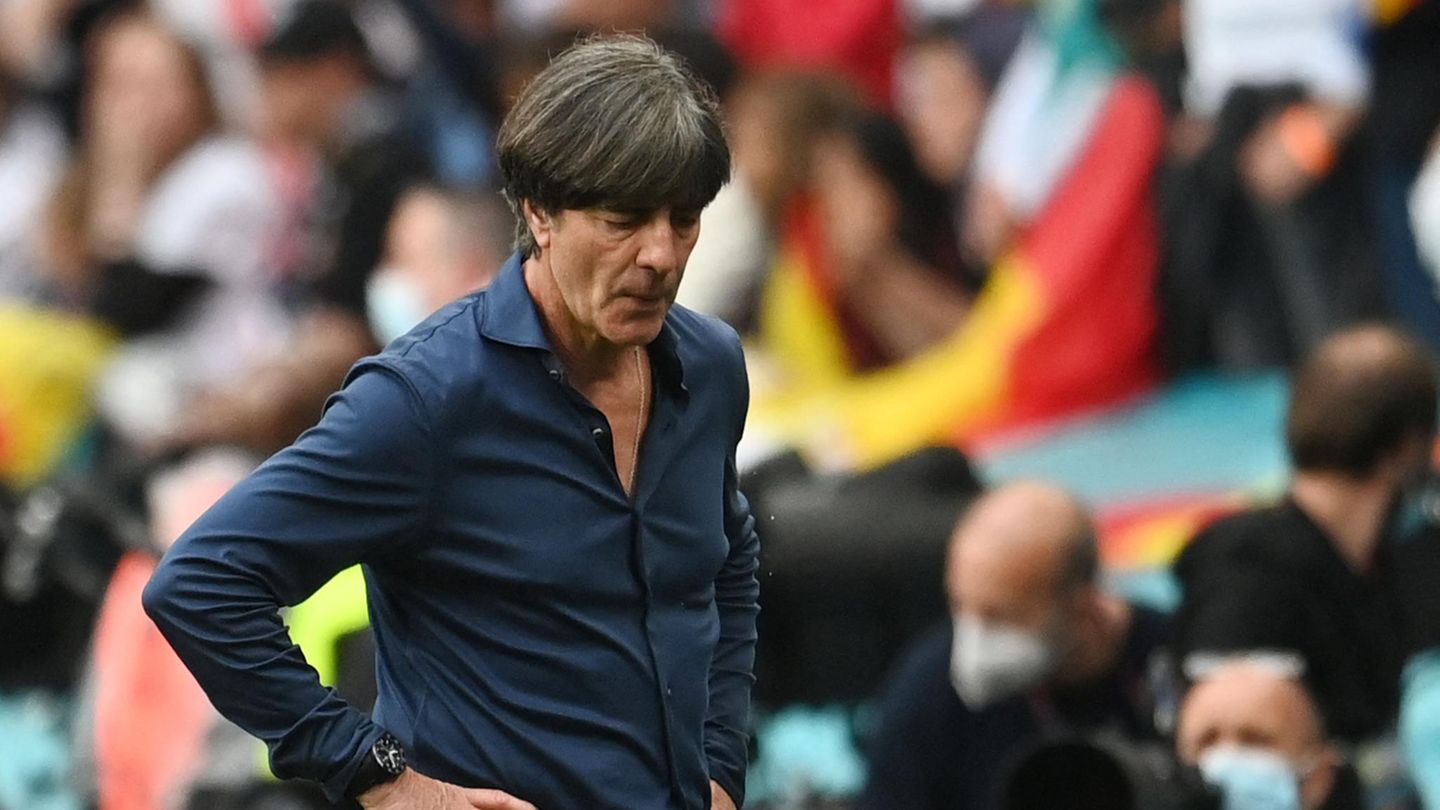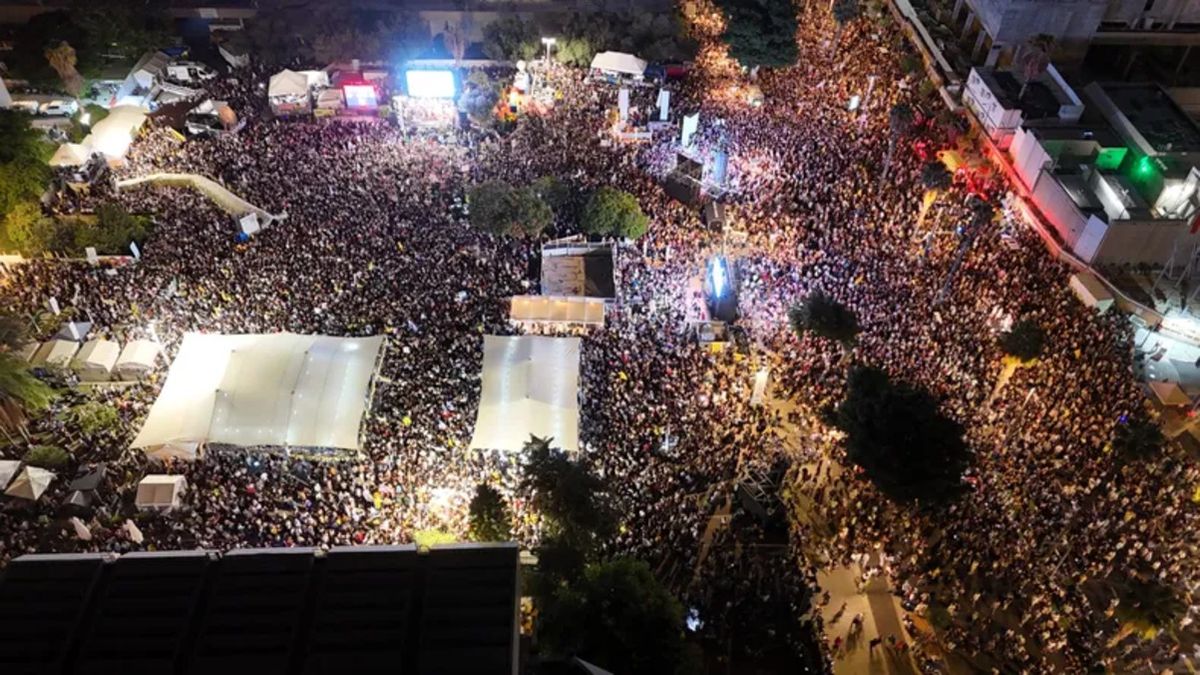In his 15 years as national coach, Joachim Löw taught the Germans to play beautifully. That is his legacy. At the end of his tenure, however, he lacked ideas for a fresh start. Löw goes as a defect manager.
The last picture of Joachim Löw as national coach is that of a beaten man. Accompanied by the English anthem “Three Lions”, Löw snuck into the catacombs of Wembley Stadium just seconds after the final whistle. His team lost 2-0 to England through late goals from Raheem Sterling and Harry Kane. It meant a double end: The European Championship will now continue without the Germans – and Löw, the country’s first coach, is also saying goodbye. After 15 years and 198 games at the DFB, he stops.
Joachim Löw did not “coach” himself
Even if Löw’s body language sent different signals: It was a bitter, but not a catastrophic farewell for the 61-year-old coach. Ultimately, two scenes decided the game; Kai Havertz’s powerful volley (48th) was sensationally parried by the English goalkeeper, and nine minutes before the end Thomas Müller narrowly missed the goal to equalize 1-1.
Löw did not fail with his tactics, he did not “coach” the game, as it is called in soccer. In the few decisive moments, Löw’s player was without fortune, without courage – and without a real center forward. A cold-blooded penalty area player like the English in Harry Kane, the Poles in Robert Lewandowski or France in Karim Benzema and Kylian Mbappé – there is currently no such thing in Germany. The last person to fill this post in the national team was Miroslav Klose. With him in the storm center, Löw became world champion in 2014.
What remains of the Löw era? Of course the World Cup triumph in Rio de Janeiro, in the Maracanã Stadium. Schürrle cross, Götze shot, 1-0 in extra time against Argentina – this moment will stick in the collective memory.
It is at least as great a merit from Löw that he taught the Germans the beautiful game. He was the nation’s top art teacher. In 2006, at the World Cup in their own country, it flashed for the first time that a DFB team has more than just the so-called rumble football. Jürgen Klinsmann breathed sophistication and playfulness into the team – qualities that only teams like Spain, France or Portugal seem to have a patent for. Joachim Löw continued Klinsmann’s path; As his assistant coach, he had already been the source of the ideas. At the 2010 World Cup, you saw a young, passionate DFB team storming to the semi-finals and only then failing against eventual world champions Spain. This team already formed the core of the team that would triumph in Brazil four years later.
This title win meant the turning point in Löw’s coaching biography – but that only became apparent after a considerable delay, at the 2018 World Cup in Russia. There is a photo of Löw that tells everything about him and his attitude to the job: Löw was leaning casually against a lantern, he was wearing aviator glasses, he looked like a tourist on summer vacation. 2018, that was the year in which Löw seemed to lose his grip on the ground. The preparation for the World Cup was slow, but Löw did not accept criticism. Anyone who expressed criticism had simply misinterpreted his football skills.
The tournament turned into a disaster. Löw’s team failed as the bottom of the group in the preliminary round; in the end, she even lost to the football dwarf South Korea.
A dismissal of Löw or his voluntary withdrawal would have been an obvious, logical step. But Loew, the Sturrkopf, didn’t want to leave like that. And the DFB let him do it – also because he had no idea for a successor.
It was only enough for a European Championship round of 16
In the autumn of his career, Löw did not reinvent himself, but he was astonishingly flexible. He brought the world champions Hummels and Müller, who had been booted out by him, back into the team for the 2021 European Championship and thus corrected himself. He let his team play more aggressively and more focused on duels. In earlier years he would have demonized this as a sign of playful poverty.

What Löw did not manage: to take this team on a new journey. Instead, he constantly tinkered with well-known weaknesses; so the defense remained a construction site despite the return of Hummels. Nor was he able to tactically compensate for the lack of a center forward; possibly an unsolvable task.
In the end, Löw was once again the best Löw he could be. But today, seven years after the World Cup triumph in Rio de Janeiro, that is no longer enough. It was only enough for a European Championship round of 16.
I have been working in the news industry for over 6 years, first as a reporter and now as an editor. I have covered politics extensively, and my work has appeared in major newspapers and online news outlets around the world. In addition to my writing, I also contribute regularly to 24 Hours World.




